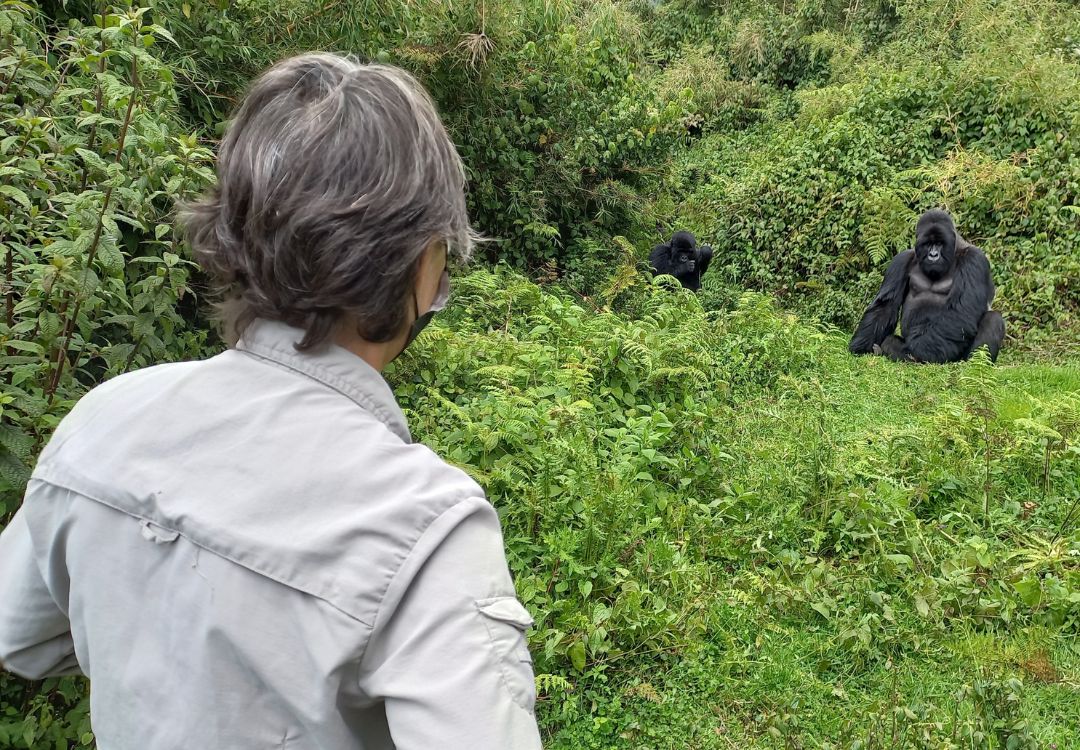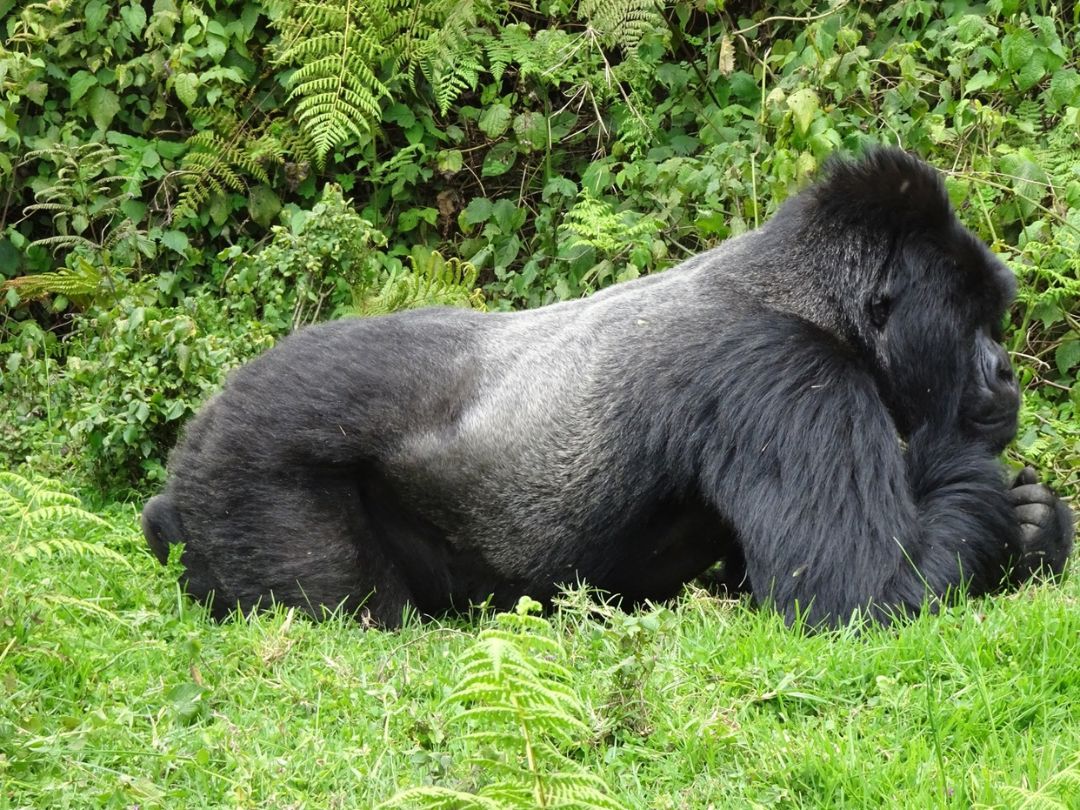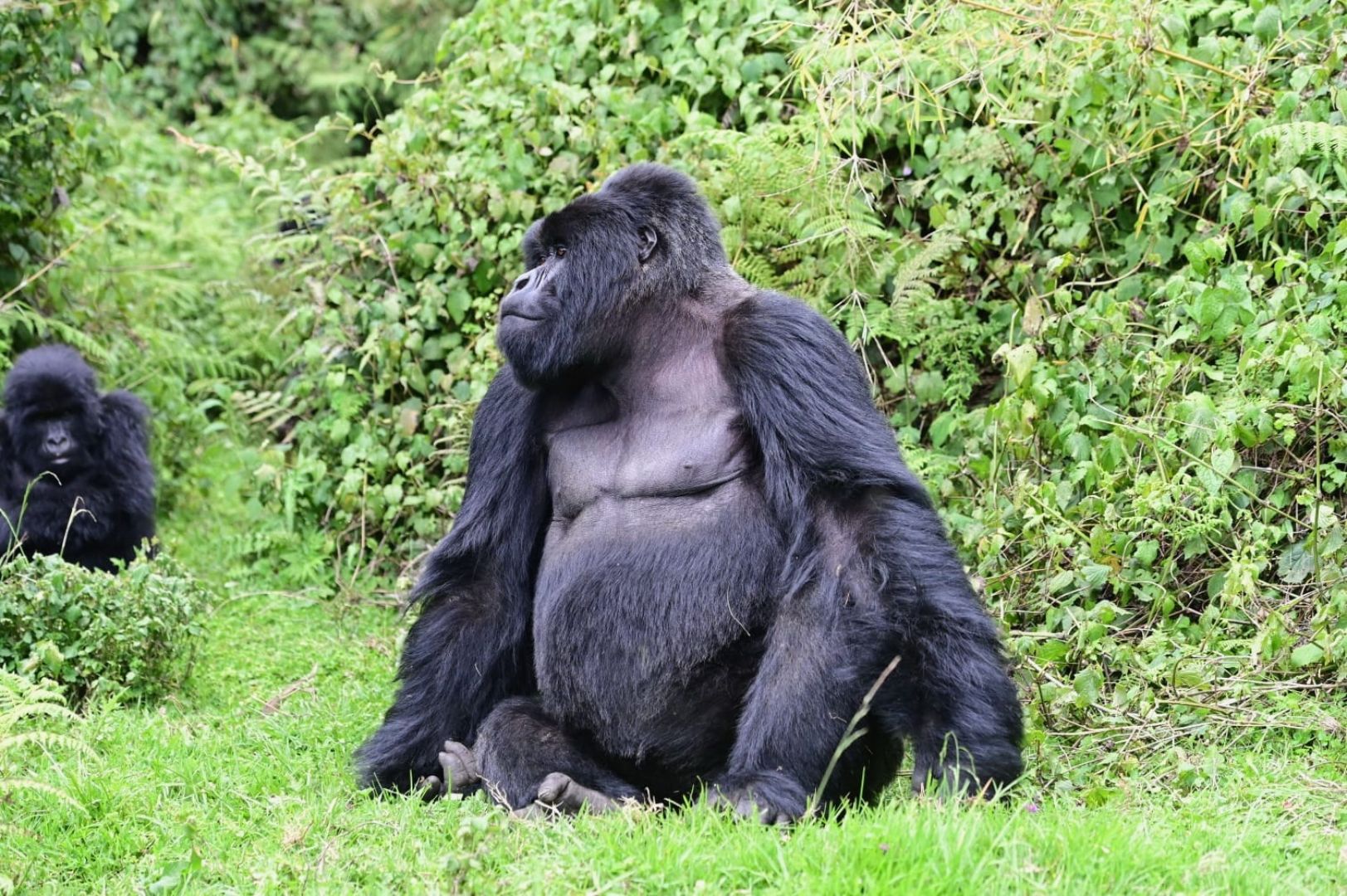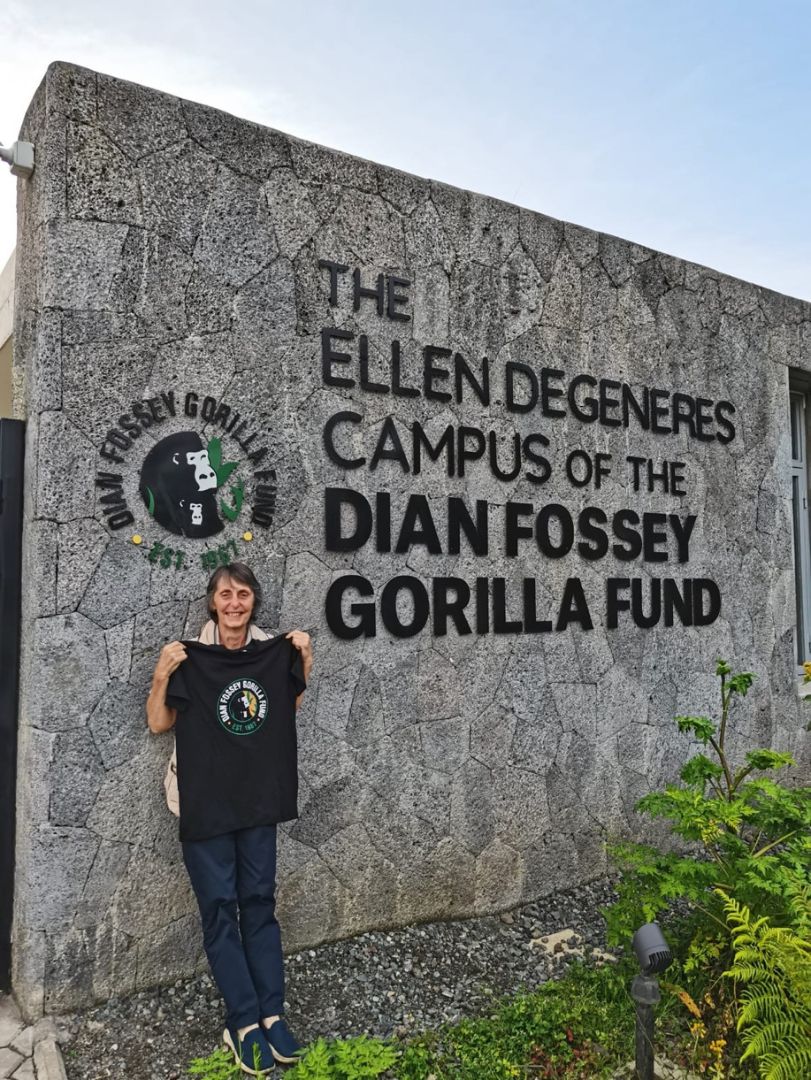The magnificent primates of Rwanda
Some things I learned about the country:
- It is not only home to two of the great ape species – gorillas and chimpanzees – but also has many other primates including golden monkeys. The beautiful bush to the east of the country is filled with lions, elephants and game.
- Rwanda is very clean and is one of the safest countries in the world. Since the terrible events of the 90’s, the people have gone through a process of reconciliation much like that in South Africa, and have a wonderful community spirit. Enshrined in the Constitution is the phrase “Everyone has the right to live in a clean and healthy environment”.
- Umuganda (coming together in common purpose to achieve an outcome”) is a national holiday in Rwanda, taking place on the last Saturday of every month for nationwide community work from 08:00 to 11:00. However, it goes much further than this and you see people the streets every day, cleaning where they live and keeping the outside of their houses neat and tidy.
My trip was to see golden monkeys, gorillas and chimpanzees. The monkeys and gorillas are located in the Volcanoes National Park, in the 5 Virunga volcanoes area in the north west of the country.
The scenery is stunning. Both the trek to the golden monkeys and the gorillas takes you through the immaculately kept local farmland to the National Park itself.
The National Park is a triumph of government and community cooperation. The local people embrace tourism and benefit directly from it as the community receives 10% of the revenue from the permits. They work as trackers, porters and guides. Some guides are even ex-poachers who now dedicate their lives to protecting the gorillas.
The next day was the big one – gorillas. There are twelve gorilla families living in the Volcanoes National Park, which are fully habituated to tour groups, with a few others habituated solely for scientific research. The trackers initially reported back that our designated gorilla family were 30 minutes away on the lower slopes. However, due to harassment from a lone male gorilla, the family was on the move. So, a short walk turned into a three hour hike through difficult territory including a ravine! It was great fun and a wonderful way to see and learn about the forest. We stayed with the group for an hour. The gorillas know the guides well and they were calm and very interested in us. The adults spent their time napping or eating, but the little ones were bounding around and playing. It was an absolute privilege and joy to watch these beautiful creatures in their natural habitat.



I loved every minute of my week in Rwanda and would like to thank my guide Cameron Scott for his company, for sharing his knowledge and for taking a wonderful photos and videos of the chimpanzees which was well beyond my skill level.

